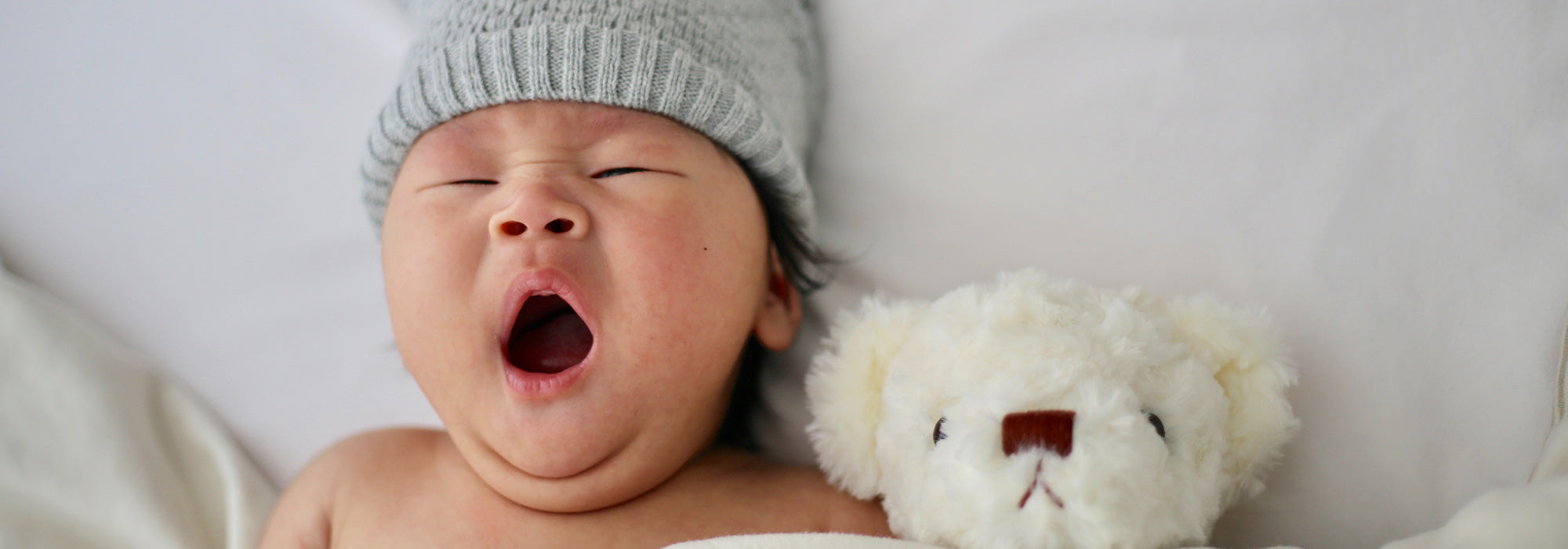As the holiday season approaches, many families look forward to spending time with loved ones. However, for those with babies, maintaining sleep training while travelling can be a significant challenge.
Below we will be discussing how to continue your baby’s sleep training effectively when travelling to ensure your baby’s sleep is as restful as possible, and that your holiday visits are as relaxing and enjoyable as they can be.

Understanding Sleep Training
Sleep training is a method used to help babies learn to fall asleep independently and stay asleep through the night. It’s an essential part of a baby’s development, ensuring they get the rest they need for their overall well-being.
The Impact of Travel on Sleep Patterns
Travel, especially during the holidays with all the extra stimuli, can disrupt your baby’s sleep routine. The change in environment, noise, and excitement can make it difficult for them to settle down and sleep.
This doesn’t mean you should avoid travelling over the holidays if you have a baby - after all, Christmas should be a relaxing and enjoyable experience for parents and children alike! However, you should make sure you are well prepared and know how to work around these disruptions to keep your baby’s sleep training on track.

Before setting off, prepare a checklist of sleep training essentials, including favourite toys, a nightlight, and a portable baby monitor. Good planning will help to ensure a smooth transition from home to your holiday destination.
Choosing the Right Travel Cot and Mattress
A comfortable travel cot is essential to continue sleep training while travelling. Look for one that is easy to set up, portable, and sturdy. Consider the cot’s size and the material it's made from for your baby’s comfort and safety.
Along with a good cot, the right travel cot mattress plays a crucial role in your baby's sleep. Opt for a firm mattress that supports your baby's back and is made of breathable materials that will prevent them from overheating while they sleep.

Maintaining Routine in New Environments
Try to maintain your baby's normal sleep routine as best you can. Consistency is key, even in a new environment. Stick to regular nap and bedtime schedules to provide a sense of familiarity.
It can be challenging to maintain sleep training during family gatherings. Communicate with your relatives about your baby's sleep schedule and set boundaries to avoid overstimulation. It might take some planning to work this around all the festivities but it will be worth it in the long run!
If you’re going to be travelling into a different time zone, gradually adjust your baby's sleep schedule a few days before departure. This can minimise the impact of jet lag on their sleep pattern.

Creating a Sleep-Conductive Environment
When travelling during your child’s sleep training, it is a good idea to make the sleeping area as familiar as possible for them. With so many stimulating changes in their environment, it helps if bedtime feels as close to normal as possible. Bring along a familiar blanket or toy and use a white noise machine if your baby is used to it.
Addressing Setbacks and Challenges
Be patient and be prepared for setbacks if you are sleep training while travelling. It’s normal for babies to take time to adjust to new environments, and you may experience these bumps in the road even when sleep training at home. Stay calm and consistent with your approach - attempting too many different methods will only add to your baby’s confusion over their new environment.

Safety Considerations While Travelling
Always prioritise your baby’s safety. Ensure the travel cot is set up correctly and free from hazards. Keep the sleeping area clutter-free and maintain a comfortable temperature.
Do not use pillows or duvets for your baby if they are less than a year old, even when the weather is cold, as these pose suffocation risks. Baby sleeping bags or sheets firmly tucked in below your baby’s shoulders can be used if they need the extra warmth.
Travelling with a baby during the holidays doesn’t have to disrupt sleep training. With the right preparation and a high-quality travel cot and travel cot mattress, you can ensure your baby’s sleep is as restful as possible, making your holiday travels enjoyable for the whole family.


